Many users live under the monopoly of two application directories. However, the situation may change, and not in favor of Google Play and the App Store …
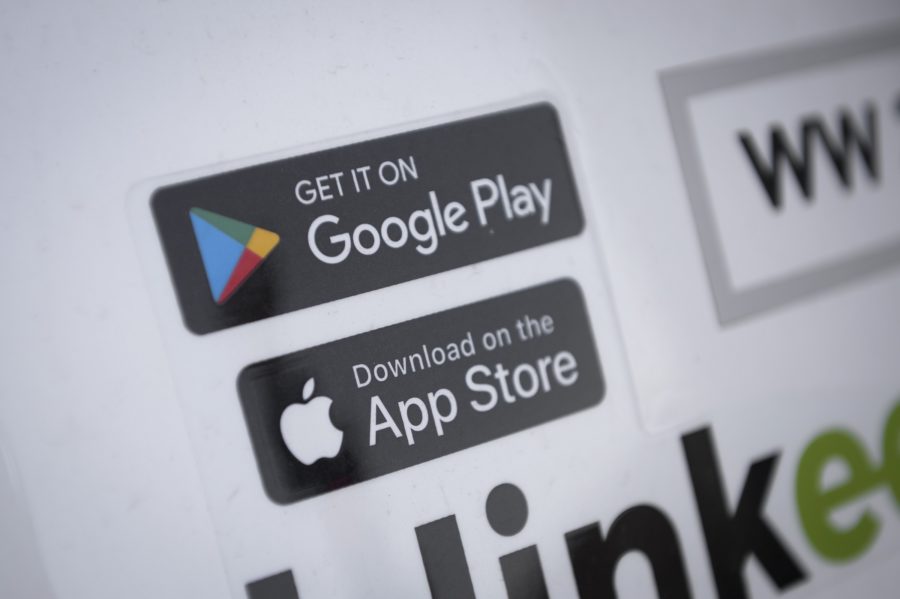
Original material by Owen Williams
Time to break the shackles of the 'golden cage' that locks you into those applications that Apple and Google put in their directories. The next generation of progressive web apps (PWAs) are starting to take root in the desktop ecosystem and may soon continue their march on smartphones, forever changing how you download apps and where you get them from.
This potential is indicated by an update in recent beta versions of Google Chrome, which accounts for 63% of the global total browser share. Users can now install apps from websites simply by clicking on the button that appears in the URL entry bar, giving them near-instant access to powerful web-based services like Spotify without app stores or complex download pages.
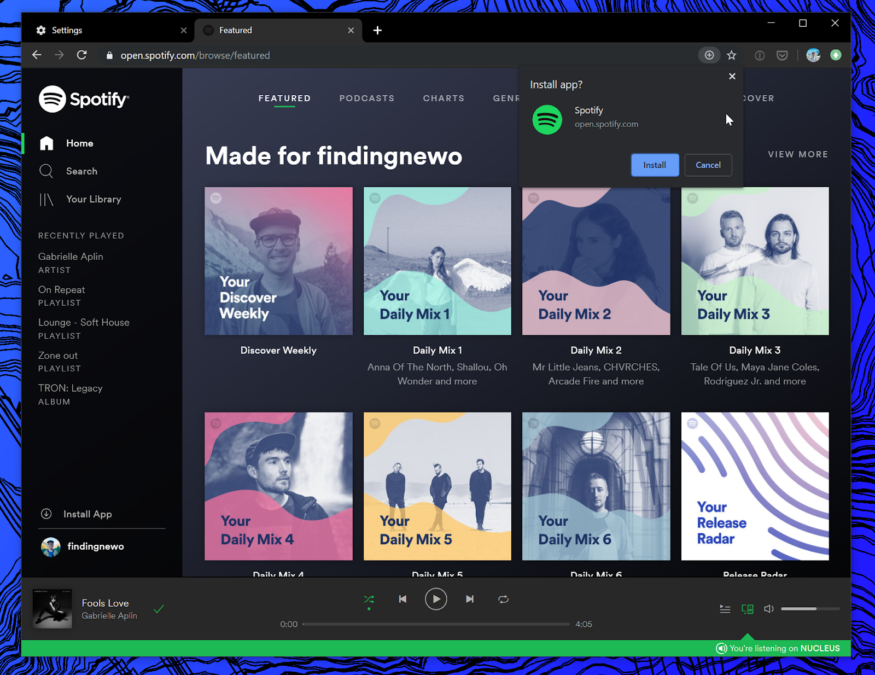
These install buttons magically give us a glimpse of the future of app development. If you go to a PWA, such as the Spotify web player, you get a PC-like experience and a new option to install the app if you're using a browser that supports it. Once installed, the application will open in a separate window outside the browser, create shortcuts on the desktop, and offer a full range of functions (such as the ability to use the computer's media keys to skip tracks or pause playback) typical of a 'real' native application.
Upcoming improvements will allow these applications to do more. Hidden options in Chrome will allow them to launch as soon as you click on the desired links. With this option, the PWA from Twitter is practically on a par with the PC application, automatically navigating to the necessary content by tweet addresses.
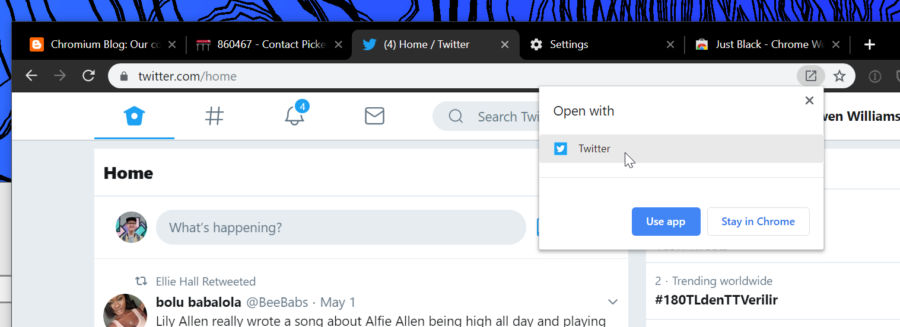
Outwardly, PWAs may look like regular websites, but they are built on new technologies that allow them to work almost like regular applications, have offline support, use push notifications, keyboard shortcuts, and the ability to install on a desktop or PC.
These updates are important for companies building the apps you use every day. Many of them are using web technologies behind the scenes to save time and money, as well as to facilitate the development process, which greatly speeds up the process of bringing new features to all operating systems.
Popular applications such as Slack, Spotify, Twitter, Visual Studio Code and WhatsApp also use web technologies to create PC applications, because they allow you to use the same code on all operating systems. Electron lets you write applications using web-based programming languages, integrating them as if they were part of your operating system and providing support for offline access and push notifications.
Building an application for any OS is an expensive and time-consuming task, making web development an obvious choice both for optimizing costs and reaching as many users as possible. PWAs make it possible to do without Electron, allowing applications to integrate natively into the OS with Chrome as their base.
The situation with PWAs for the mobile platform is slightly different. Centralized app catalogs, run by Google and Apple, are generally the only way to download apps to your phone. Yes, Google technically allows you to download Android – apps from third-party sources, but the feature is disabled by default and with every update Android it gets more annoying.
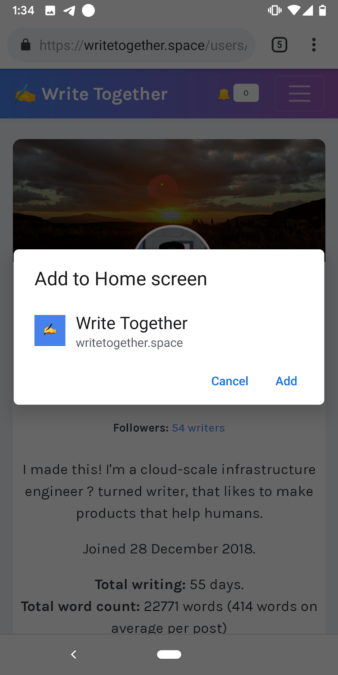
Technically, PWAs can run on mobile devices and are likely to consume less resources than regular apps. Despite the advantages, only one of the two major players in this market is particularly interested in implementing this technology. Google has been investing in PWA and Android integration for a long time, allowing users to install them, get quick notifications, and even use them offline. I have added a PWA for my application. At a basic level, this took several hours and now allows users to install the app locally, increasing user retention rates and adding additional features.
But Apple are in no hurry to properly enforce many web standards that would allow progressive web apps to work correctly on mobile devices. The company is silent about its plans, but it is easy to assume that the reason is that such functionality will compete with one of the company's revenue sources and people will download fewer familiar applications.
Google and Apple are encouraging 'native' code for their platforms. Keeping developers within their platforms allows companies to take a share of the profits from the sale of applications and retain control over what exists within their platforms. In theory, the PWA version could have applications such as the repeatedly blocked Apple Metadata +, which tracks US drone-based airstrikes around the world. Yes, that also means that non-platform-specific services like Infowars can exist in the form of an application, but at the very least they are deprived of the large-scale distribution potential that guarantees a presence in the official application catalog.
In any case, the PWA movement is already gaining momentum in the context of major players. Dig deeper and you will see that the new design Facebook presented at the F8 conference is a progressive web application. And it demonstrates how such technologies can dramatically change the user experience.
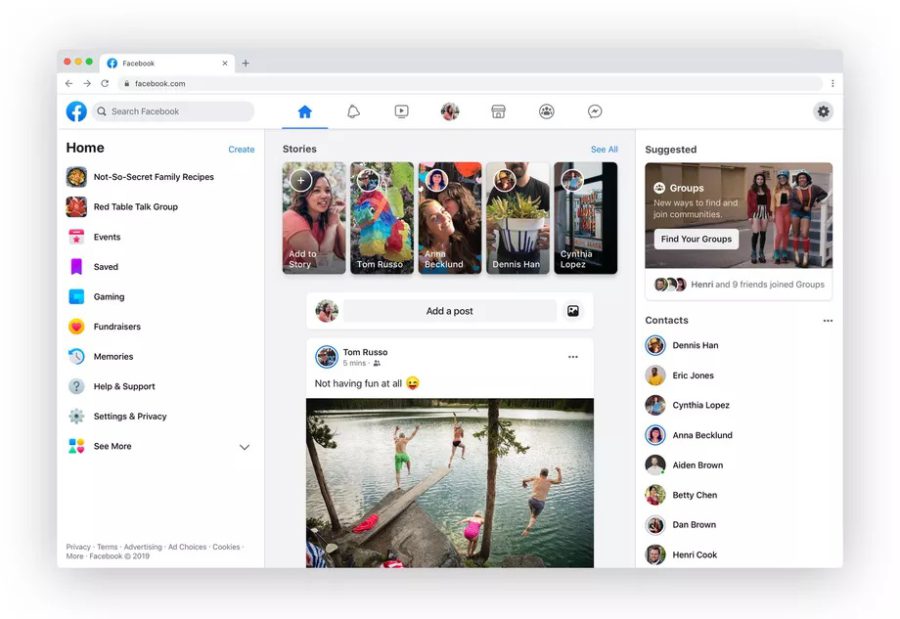
The updated Facebook currently being rolled out to users feels more like an app than a website, preparing a 'scene' for a desktop version that is separate from the browser for the first time. The new website Twitter is also a PWA. It was born out of a redesign of the mobile website and has become the default site over time. The growing popularity of PWAs among app developers is backed up by data: Tinder said their web app helped reduce load times from 11 seconds to 4 seconds and reduced app size by 90% compared to the native app. AliExpress used PWAs to increase conversions by 104% and saw a 74% increase in time spent in the service.
Microsoft announced late last year that it would allow developers to publish Progressive Web Apps directly to the Windows Store directory, making them available for installation on millions of computers around the world. Now the company plans to index all such applications that it finds on the network and automatically add them to the catalog, and Google should do the same at the end of 2019 with its Play Store catalog.
Safari on iOS remains a short-term problem for PWAs, but the concept is already changing as Apple secretly began to use bits and pieces of this standard in secret, even though it deprives the device of key features like support for notifications or access to camera usage iPhone in PWA.
If Apple continues to block such applications, it will question the company's ability to maintain a presence among the general public. This behavior is fraught with certain risks for Apple: similar steps in the past have caused antitrust investigations and heavy fines.
Web technologies have already taken over the desktop, and the button to instantly install apps in Chrome and Edge will be the final point in this process. Millions of people around the world already spend most of their time in browsers, so it makes sense to make the web a platform for applications. This is the long-awaited move away from closed ecosystems and a return to the open web, where anyone can create an app, publish it, and let millions install it instantly.
Original material by Owen Williams
As often happens with new technologies, at first glance, everything is fine, until the question of security arises. Within their catalogs Apple and Google, albeit not 100%, are ready to declare application security. And who will give these guarantees to users of web applications, regardless of their progressiveness? Or would anyone not be trusted to create such an application? Funny, but not really.
Not to say that I am an active supporter of PWA, but as it turned out, I use some of these applications, among them – Uber and Flipboard, sometimes I take time playing in 2048. But the potential of such applications is actually quite large, especially this concept is close Google in context Chrome OS. And mobile devices will only benefit from light, but functional versions of regular applications, the same application Facebook for Android has already spoiled the blood of many users due to its size and the habit of degrading system performance.
In your opinion, will such applications be able to replace the usual native clients or their time has not come yet?
